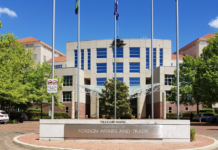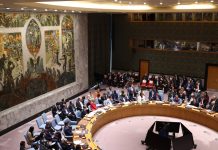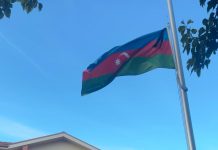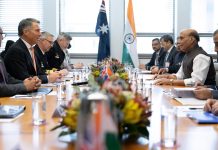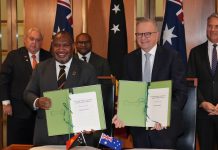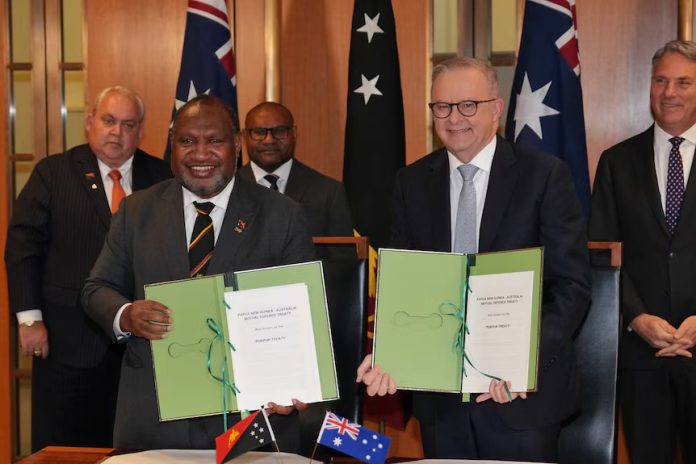In a historic move, Australia and Papua New Guinea have elevated their bilateral relationship to a formal alliance by signing a landmark defence pact, committing each nation to “act to meet the common danger” if the other is faced with an armed attack.
Australian Prime Minister Anthony Albanese and his PNG counterpart James Marape signed the new defence cooperation agreement—dubbed the “Pukpuk” treaty—in Canberra on Monday, solidifying a pact that strengthens Australia’s position as PNG’s primary security partner.
The treaty contains a mutual defence clause, stating that “an armed attack on either of the Parties within the Pacific would be dangerous to each other’s peace and security.” It commits both nations to “act together to meet the common danger,” marking Australia’s first new alliance in over 70 years.
“This is an historic day,” Mr Albanese declared, comparing the mutual defence provisions to those in the ANZUS treaty between Australia, New Zealand, and the United States.
Prime Minister Marape emphasised that the agreement was driven not by “geopolitics” but by “geography, history and the enduring reality of our shared neighbourhood.” He used a metaphor to describe the pact: “It is about one bigger fence that secures two houses that has its own yard space.”
Strategic Implications and Regional Balance
The agreement is widely seen as a strategic victory for Australia, cementing its role as PNG’s key defence partner and creating a significant hurdle for China’s ambitions to expand its security footprint in the region. The treaty includes a clause where both parties agree not to undertake activities with third parties that “compromise the purposes of this treaty”—a measure observers say is directly aimed at limiting China’s defence engagement with PNG.
However, Mr Marape sought to reassure other partners, stating he had been “transparent” with China about the treaty and that the document was not designed to exclude anyone.
“Some things that we can never change is history and geography,” Mr Marape said. “This is a conscious choice that Australia will be our security partner of choice… I will never live to regret this choice I made.”
Modernising Forces and Cross-Enlistment
A key component of the treaty is Australia’s commitment to helping PNG expand and modernise its defence forces to better “deter and resist external threats and armed attacks.”
In a groundbreaking personnel exchange, the leaders confirmed the pact will open pathways for PNG citizens to serve in the Australian Defence Force (ADF). Mr Marape suggested up to 10,000 citizens could eventually serve, a figure Mr Albanese said Australia could “certainly” reach “over a period of time.”
As a first step, the Australian government confirmed that PNG permanent residents living in Australia will be eligible to join the ADF from January 1, 2025. The agreement also holds the potential for Australians to be recruited into the PNG Defence Force in the future.
A Sovereign Choice in Conflict
Despite the mutual defence commitments, Prime Minister Marape later clarified that there was a “high possibility” PNG would not automatically enter a potential conflict involving Australia and China, stressing his country’s sovereign right to make its own calls.
“This treaty was constructed within the fullest ambit of respecting sovereignties, and [each country] making their own calls,” he told the ABC’s 7.30 program, underscoring that the alliance does not equate to an automatic declaration of war by PNG in every scenario involving Australia.












